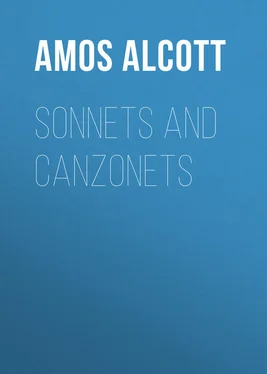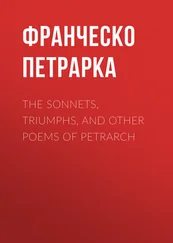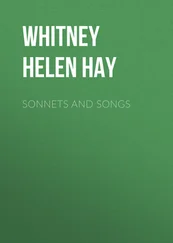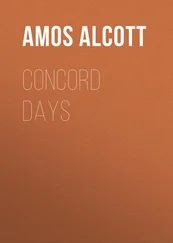Amos Alcott - Sonnets and Canzonets
Здесь есть возможность читать онлайн «Amos Alcott - Sonnets and Canzonets» — ознакомительный отрывок электронной книги совершенно бесплатно, а после прочтения отрывка купить полную версию. В некоторых случаях можно слушать аудио, скачать через торрент в формате fb2 и присутствует краткое содержание. Жанр: foreign_antique, foreign_prose, на английском языке. Описание произведения, (предисловие) а так же отзывы посетителей доступны на портале библиотеки ЛибКат.
- Название:Sonnets and Canzonets
- Автор:
- Жанр:
- Год:неизвестен
- ISBN:нет данных
- Рейтинг книги:5 / 5. Голосов: 1
-
Избранное:Добавить в избранное
- Отзывы:
-
Ваша оценка:
- 100
- 1
- 2
- 3
- 4
- 5
Sonnets and Canzonets: краткое содержание, описание и аннотация
Предлагаем к чтению аннотацию, описание, краткое содержание или предисловие (зависит от того, что написал сам автор книги «Sonnets and Canzonets»). Если вы не нашли необходимую информацию о книге — напишите в комментариях, мы постараемся отыскать её.
Sonnets and Canzonets — читать онлайн ознакомительный отрывок
Ниже представлен текст книги, разбитый по страницам. Система сохранения места последней прочитанной страницы, позволяет с удобством читать онлайн бесплатно книгу «Sonnets and Canzonets», без необходимости каждый раз заново искать на чём Вы остановились. Поставьте закладку, и сможете в любой момент перейти на страницу, на которой закончили чтение.
Интервал:
Закладка:
It may be complained that these sonnets lack variety. This is indeed a fault into which sonneteers often fall, – our best collection of American sonnets hitherto – those of Jones Very – being open to this censure. It will be found, perhaps, that the sameness of rhyme and thought is often but an appearance, – the delicate shade of meaning being expressed, in a vocabulary of no large extent, by a rare process of combining and collocating words. Certain phrases recur, too, because the thought necessarily recurs, – as when the oratory of Phillips and of Parker, as of others, is characterized by the general term, eloquence . In the poverty of our language, there is no other term to use, while the qualifying words and their connection sufficiently distinguish between one person and another. The critical are referred to Homer, who never fails to repeat the same word, or the same verse, when it comes in his way to do so.
But to return to the sonnet itself. Landor, to whom as to Thoreau, Milton was the greatest English poet, thought that the blind Puritan had made good his offence against the Psalms of David, by the sonnet on the slaughtered saints of Piedmont. “Milton,” he says, “was never half so wicked a regicide as when he lifted up his hand and smote King David. He has atoned for it, however, by composing a magnificent psalm of his own, in the form of a sonnet. There are others in Milton comparable to it, but none elsewhere.” And then the wilful critic goes on to say, putting his words into the mouth of Porson: “In the poems of Shakespeare, which are printed as sonnets, there is sometimes a singular strength and intensity of thought, with little of that imagination which was afterward to raise him highest in the universe of poetry. Even the interest we take in the private life of this miraculous man, cannot keep the volume in our hands long together. We acknowledge great power, but we experience great weariness. Were I a poet, I would much rather have written the ‘Allegro,’ or the ‘Penseroso’ than all those.” Monstrous as this comment seems to us, there is a certain truth in it, the sonnet in large quantities always producing weariness; for which reason, as I suppose, Dante interspersed his love sonnets in the “Vita Nuova” and the “Convito,” with canzonets and ballads. His commentaries – often of a singular eloquence – also serve as a relief to the formal verse, as his melodious Tuscan lines do to the formality of his poetical metaphysics. A person, says Landor, “lately tried to persuade me that he is never so highly poetical, as when he is deeply metaphysical. He then quoted fourteen German poets of the first order, and expressed his compassion for Æschylus and Homer.” Dante’s metaphysics were of a higher cast, and so interfused with love and fair ladies, that they only weary us with a certain perplexity as to where are the limits of courtship and of logic. Mr. Alcott also is quaintly metaphysical in Dante’s fashion; like the sad old Florentine, but with a more cheerful spirit, he addresses himself
“To every captive soul and gentle heart,”
(A ciascun alma presa e gentil core,)
and would fain inquire of those who go on a pilgrimage of Love (O voi che per la via d’Amor passate) and of the fair ladies who have learned love at first hand (Donne che avete intelletto d’amore.) His doctrine is that of the wise man whom Dante quotes and approves in the “Vita Nuova,” —
“One and the same are love and the gentle heart.”
(Amor e’ l cor gentil sono una cosa.)
Other Americans have written sonnets in this ancient faith, – as he, who thus (in that happy season so aptly described by Mr. Alcott, as addressed his own cor gentil : —
“Youth’s glad morning when the rising East
Glows golden with assurance of success,
And life itself’s a rare continual feast,
Enjoyed the more if meditated less,”)
addressed his own cor gentil: —
“My heart, forthlooking in the purple day,
Tell me what sweetest image thou may’st see,
Fit to be type of thy dear love and thee?
Lo! here where sunshine keeps the wind away,
Grow two young violets, – humble lovers they, —
With drooping face to face, and breath to breath,
They look and kiss and love and laugh at death: —
Yon bluebird singing on the scarlet spray
Of the bloomed maple in the blithe spring air,
While his mate answers from the wood of pines,
And all day long their music ne’er declines;
For love their labor is, and love their care.
‘These pass with day and spring;’ the true heart saith, —
‘Forever thou wilt love, and she be fair.’”
In the same Italian vein, another and better poet, but with less warmth, touches the same theme, —
“Thou art like that which is most sweet and fair,
A gentle morning in the youth of spring,
When the few early birds begin to sing
Within the delicate depths of the fine air.
Yet shouldst thou these dear beauties much impair,
Since thou art better than is everything
Which or the woods or skies or green fields bring,
And finer thoughts hast thou than they can wear.
In the proud sweetness of thy grace I see
What lies within, – a pure and steadfast mind,
Which its own mistress is of sanctity,
And to all gentleness hath been refined.
So that thy least breath falleth upon me
As the soft breathing of midsummer wind.”
In the changes of time and the fitful mood of the poet, sadness succeeds to this assured joy, and he sings, —
“The day has past, I never may return;
Twelve circling years have run since first I came
And kindled the pure truth of friendship’s flame;
Alone remain these ashes in the urn —
Vainly for light the taper may I turn, —
Thy hand is closed, as for these years, the same,
And for the substance naught is but the name.
No more a hope, no more a ray to burn.
But once more in the pauses of thy joy,
Remember him who sought thee in his youth,
And with the old reliance of the boy
Asked for thy treasures in the guise of truth.”
Here is another voice, chanting in another strain, —
“Thy beauty fades, and with it, too, my love,
For ’twas the selfsame stalk that bore the flower;
Soft fell the rain, and, breaking from above,
The sun looked out upon our nuptial hour;
And I had thought forever by thy side
With bursting buds of hope in youth to dwell;
But one by one Time strewed thy petals wide,
And every hope’s wan look a grief can tell;
For I had thoughtless lived beneath his sway,
Who like a tyrant dealeth with us all, —
Crowning each rose, though rooted in decay,
With charms that shall the spirit’s love enthral,
And, for a season, turn the soul’s pure eyes
From virtue’s bloom that time and death defies.”
Out of this valley of sadness the spirit rises on bolder wing, as the melancholy mood passes away, —
“Hearts of eternity, hearts of the deep!
Proclaim from land to sea your mighty fate;
How that for you no living comes too late,
How ye cannot in Theban labyrinth creep,
How ye great harvests from small surface reap,
Shout, excellent band, in grand primeval strain,
Like midnight winds that foam along the main, —
And do all things rather than pause to weep.
A human heart knows naught of littleness,
Suspects no man, compares with no one’s ways,
Hath in one hour most glorious length of days,
A recompense, a joy, a loveliness;
Like eaglet keen, shoots into azure far,
And always dwelling nigh is the remotest star.”
Here, as Landor said, “is a sonnet, and the sonnet admits not that approach to the prosaic which is allowable in the ballad.” For this reason Mr. Alcott, who began his poetical autobiography, when he was eighty years old, in a ballad measure, has now passed into the majesty of the sonnet, as he has come to those passages of life which will not admit prosaic treatment. Moderately used, and not worked to death, as Wordsworth employed it, the sonnet is a great uplifter of poesy. It calls to the reader, as the early Christian litanies did to the worshipper, Sursum corda , Raise your thoughts! The canzonet lets us down again into the pathetic, the humorous, or the fanciful, – though in this volume the canzonet generally betokens sadness. It may easily become an ode, as in the verses on Garfield: indeed the ode may be considered as an extended canzonet, or the canzonet as a brief ode. It is the sonnet that chiefly concerns us now, and that form of the sonnet which deals with love; since the germ of this book was a romance of love, seeking to express itself in the uplifting strain and tender cadence of successive sonnets; which lead us though green pastures and beside the still waters, and then to the shore of the resounding sea, – itself worthy of a sonnet which I have somewhere heard: —
Читать дальшеИнтервал:
Закладка:
Похожие книги на «Sonnets and Canzonets»
Представляем Вашему вниманию похожие книги на «Sonnets and Canzonets» списком для выбора. Мы отобрали схожую по названию и смыслу литературу в надежде предоставить читателям больше вариантов отыскать новые, интересные, ещё непрочитанные произведения.
Обсуждение, отзывы о книге «Sonnets and Canzonets» и просто собственные мнения читателей. Оставьте ваши комментарии, напишите, что Вы думаете о произведении, его смысле или главных героях. Укажите что конкретно понравилось, а что нет, и почему Вы так считаете.












